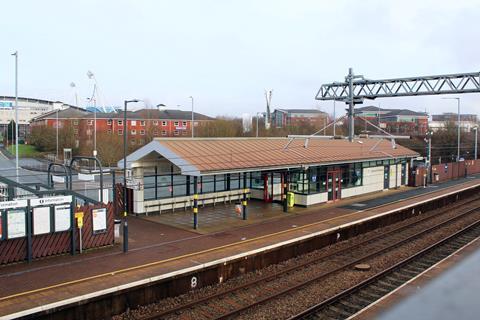
UK: Transport for Greater Manchester replaced Northern Trains Ltd as the operator of Horwich Parkway with effect from February 1, in a move which the authority sees as a first step towards the local management of more stations.
TfGM is now responsible for ticket sales, customer service, passenger assistance, cleaning and day-to-day maintenance. The railway infrastructure remains the responsibility of Network Rail.
In 2017 the Department for Transport rejected a proposal for all 97 stations in the TfGM area to be transferred to the authority. TfGM had envisaged that it would lease the stations from Network Rail at peppercorn rates, and then develop them in to community hubs with unused land being made available for housing and local facilities. It believed this could unlock that £400m of investment over 20 years, citing the £2m redevelopment of a derelict building at Irlam in 2015 which now houses a café, waiting area, toilets, meeting facilities, along and has a cycle hub and 60-space car park.
The transfer of responsibility for Horwich Parkway was simplified by the fact that the station has been owned by TfGM since it opened on July 2 1999, with franchisees managing operations on its behalf and TfGM responsible for enhancements and renewals.
TfGM hopes that it will now act as a blueprint for a future approach to station management, which includes ‘working with local partners and the rail industry to ensure stations are accessible, integrated and reflect the needs of their communities’.
It is still hoping for local control of stations, along with a more integrated approach to transport and simplified ticketing.
‘We have long-standing ambitions to transform rail stations in Greater Manchester, managing them for and on behalf of local people’, said Mayor of Greater Manchester Andy Burnham. ‘Taking over the running of Horwich Parkway is a key first step on that journey. More local control over our public transport services is key to Greater Manchester being able to design and deliver a network that is properly joined-up across all forms of transport and contributes to achieving the priorities of the city-region and all the 10 districts.’



